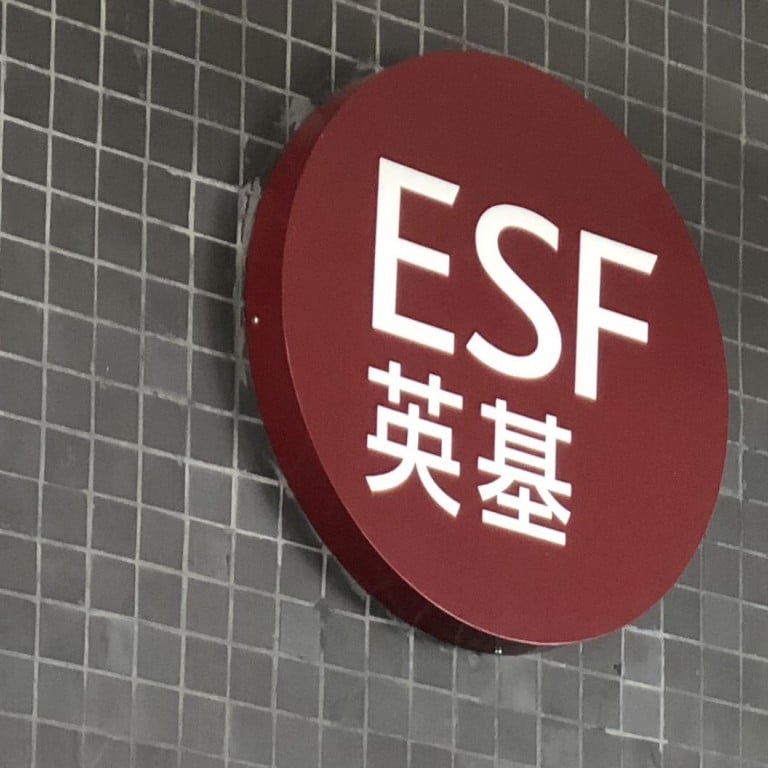
Hong Kong’s ESF schools hit with more allegations of racism after student’s open letter published in June
- Several parents have spoken out alleging racism at ESF schools following the letter accusing teachers of various acts of discrimination
- One parent said that during a field trip when her son forgot to bring a hat, the teacher told the student it did not matter because he was already dark-skinned
Singled out to collect litter, made the butt of jokes about skin colour, and having to tolerate cultural insensitivity are among complaints that have been raised by ethnic minority parents whose children study in English Schools Foundation (ESF) institutions in Hong Kong.
To date the letter has garnered more than 2,000 signatures in support of reform against racist practices at KGV and opened a Pandora’s box for the ESF. More students, former students and Indian parents say they have experienced systemic racism at other ESF schools, including West Island School (WIS), Quarry Bay School (QBS), South Island School (SIS) and Bradbury School.

Several parents, speaking on conditions of anonymity, agree that ESF teachers need to be more aware of cultural differences and help Asian students assimilate and adapt, especially those new to the ESF.
“Change can already be quite daunting for [all] kids,” says a parent whose child studies at WIS, citing cases of new students being ostracised by classmates while teachers did “nothing to intervene”.
Another WIS parent, whose daughter was asked to pick up litter after class on several occasions along with another student of Indian descent – while other students were allowed to leave – says: “It is really heartbreaking to see our child lose self-confidence due to ill-treatment meted out based on her nationality and because she was a [newcomer].”
A parent of a Bradbury School student recalled an incident that took place during a field trip when her son forgot to bring a hat. The teacher allegedly told the student it did not matter because he was already dark-skinned.
“It should be the responsibility of the school to take care of new students irrespective of their nationality. Open-mindedness and equality is regularly taught at the school but should be implemented as well. There should be an inclusive environment in the school,” the parent says.

An ESF spokesperson responded to the allegations, saying it is not a time to be defensive about the experiences that have been shared with the foundation.
“We must listen to them, seek to understand them and then put appropriate action in place to make sure that we strengthen our approach to equality and diversity in every one of our 22 schools,” the spokesperson says.
Of the 52 international schools in Hong Kong, the ESF’s 22 schools educate almost 43 per cent of the student body.
Several parents agree that any call for open-mindedness should include acceptance of Indian and other value systems. “Asian students can be more hardworking, polite and are generally non-disruptive [compared to Westerners]. However, they do not get acknowledgement or recognition,” one says.
Indians are accepted only if they change their eating habits and behave in ways accepted in a Western culture
A parent with children at both QBS and SIS says that there is little evidence that children genuinely understand the problems associated with such discrimination aside from, for example, making posters and art portfolios that raise awareness to racism.
“My sense of racism is that it differs from one school to another,” the parent says. “I have kids of extremely close friends in KGV [who] can clearly understand the concerns articulated in the petition. [However] I cannot say the same for the schools my kids go to. But racism is subtle and is embedded in the processes and nurturing of practices that are not easily apparent to kids. It feels like many of the teachers are subject to their own indoctrination of how things [are supposed to] run at schools.”
ESF to freeze school fees for first time in decade amid Covid-19 crisis
The parent of the Bradbury School student feels that all ethnic minorities are expected to assimilate to their new environments within the ESF setting.
“Indians are accepted only if they change their eating habits and behave in ways accepted in a Western culture,” but there is no such expectation of Korean, Japanese or Chinese students, she says.
Some parents interviewed had “no complaints” and were “satisfied” with the education and learning environment ESF schools provided. However, several parents confirm allegations made in the online petition that “teachers don’t care about learning to pronounce names of Asian students properly”.
Reforms parents would like to see include more representation of Asian parents on parent-teacher committees, so that their concerns are not dismissed by the majority of Western parents who have a different “value system” and a “colonial hangover”.
We must be prepared to look critically at ourselves and ask searching questions about how we currently work
Their comments speak to the petition initiated by the KGV student. “A diverse student body” in itself does not guarantee an inclusive learning environment. The student suggests “including a diversity and inclusion policy informed by other diversity and inclusion models”.
A former ESF parent points out there is a need for this policy given that the mission and vision ESF has for its students is a commitment to providing “joyful learning environments and nurturing global citizens”.
Mary Lawton, who was principal of the international section of the French International School for 22 years before her retirement in 2014, feels that “an ethos of inclusivity and the nurturing of practices that respect students of all cultures percolates from the top”.

The ESF spokesperson says: “As our CEO made clear last week, what we have heard is deeply troubling to us – and it is right that we are taking this seriously and that it is being dealt with at the very highest level of our organisation. We must be prepared to look critically at ourselves and ask searching questions about how we currently work.
“This is our top priority over the period of the summer holiday. Actions will be put in place at the start of the next school year.”

